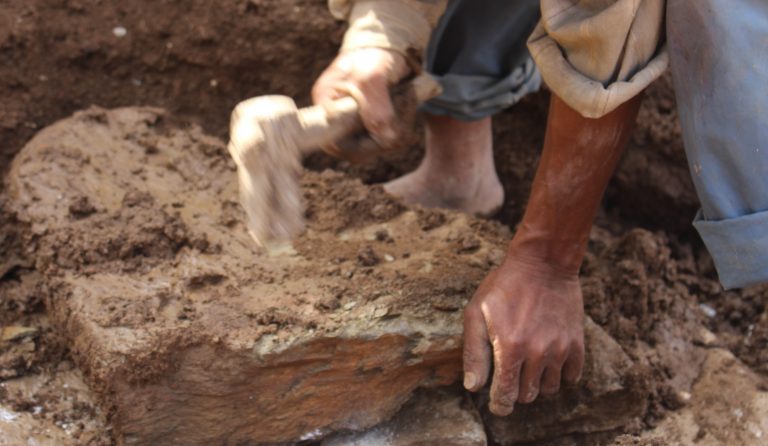About
In 2015, Nepal was struck by its worst natural disaster in several decades — twin earthquakes of 7.9 (April 25) and 7.3 (May 12) magnitude left 9,000 people dead, injured 20,000 and destroyed over 600,000 homes. The devastating socio-economic and environmental impacts of this catastrophe were compounded by the nation’s protracted political impasse over the adoption of a new Constitution in September 2015, with controversial provisions on federal administrative boundaries and citizenship. These political dynamics were ongoing since a comprehensive peace agreement was signed in 2006 after a decade-long civil war between Maoist insurgents and state forces. After the earthquakes, the National Reconstruction Authority was established by the government in December 2015 to lead and manage the highly contentious and protracted process of reconstruction.
Within this context of political and material upheaval, this multi-disciplinary research partnership focuses on how certain domains of expertise become sites of social transformation in relation to shifting labour markets and conditions of high mobility in places where post-conflict and post-disaster processes intersect. The formal work of the Partnership Development Grant team began with a start-up workshop in September 2017 and will continue for three years.
The theoretical approach emerges from a critical social science and humanities framework that draws on the research partnership’s strengths in anthropology, geography and planning, art history, Himalayan and South Asian studies, public policy, religious studies, economics, engineering and law. Additionally, representatives from community-led organizations in Canada and Nepal (see Community Partners page) with significant field expertise and knowledge will be consulted as the project evolves.
Objectives
This partnership aims to understand the socio-political effects of Nepal’s 2015 earthquakes and post-earthquake reconstruction, particularly as they interact with the nation’s changes already underway as a result of the end of the decade-long civil war, the process of federal state restructuring, and the protracted political impasse over the adoption of a new Constitution. The partnership’s main objectives include launching a partnership through pilot research modules on three domains of expertise; collaborating on research design and dissemination through knowledge-sharing workshops in Canada, Nepal and Denmark; bringing Canada-based Nepali diaspora organizations into dialogue with academics and Canadian humanitarian agencies; curating an online research portal and publishing an edited volume; and generating a proposal for a wider-scale and long-term Partnership Grant in a broader trans-Himalayan context.
The main goals of the partnership are:
- To build an international network of scholars, academic institutions, and non-profit organizations focusing on post-earthquake reconstruction and social transformation in Nepal.
- To collaboratively develop and deploy mixed ethnographic and survey methods through three pilot research projects in selected earthquake-affected areas of rural and peri-urban Nepal. These will focus on three domains of expertise critical to post-conflict and post-disaster transformation: construction (engineers, architects, and traditional builders); law (politicians, civil servants, and lawyers); and finance (bankers, corporate investors, and microfinance/cooperative fund managers).
- To enhance training and research capacity in Canada and Nepal, with an emphasis on field-based methods.
- To build foundations for a larger Partnership Grant application to investigate and improve post-disaster reconstruction in mountainous regions with a focus on the trans-Himalayan region.
- To develop a framework for student research shaped by a rich combination of mentorship, pilot research, and conference participation in multiple settings.
These inquiries will build an analytical framework for investigating the dynamics of social transformation, state-building, and subjectivity in the wake of political and environmental upheaval. Pilot research focusing on the three domains of expertise critical to reconstruction: construction, law, and finance will employ mixed ethnographic and survey methods in relation to each of these domains, in selected earthquake-affected areas of rural and peri-urban Nepal.
Funding
As the primary applicant, UBC Professor Sara Shneiderman (Anthropology and the School of Public Policy & Global Affairs/Institute of Asian Research) along with co-applicants Professor Philippe Le Billon (UBC Geography) and Professor Katharine Rankin (U of Toronto Geography & Planning) was awarded funding for a three-year Partnership Development grant from the Social Sciences and Humanities Research Council of Canada (SSHRC).
The project has received additional support and funding from the following units at UBC:
- Peter Wall Institute for Advanced Studies
- Faculty of Arts
- School of Public Policy & Global Affairs
- Department of Anthropology
- Institute of Asian Research (IAR)
- Hampton Fund Grant
- WorkLearn Program
- Arts Undergraduate Research Awards
And from the following academic partners:
- Social Science Baha (SSB)
- University of Toronto
- British Columbia Institute of Technology (BCIT)
- Aarhus University
- University of Copenhagen
- Appalachian State University
We are also grateful for support from and collaboration with the following community partners:

